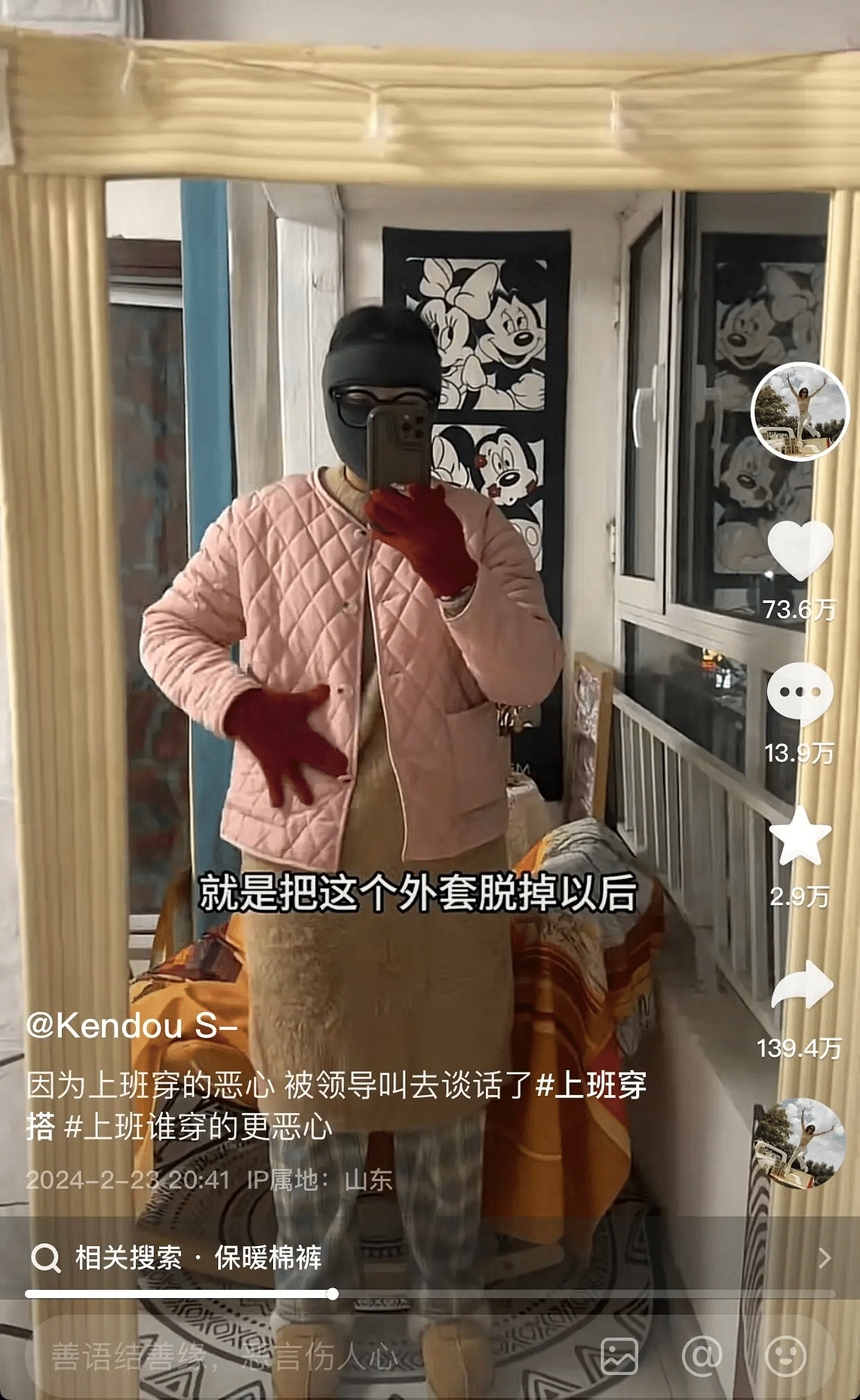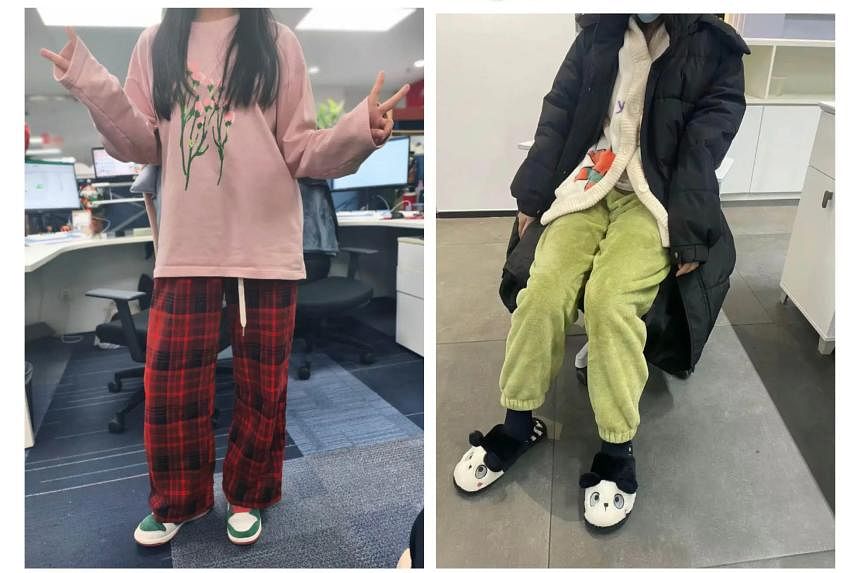When the weather turned cold in December, Ms Cindy Luo started to wear her fluffy pyjamas over a hooded sweatshirt at the office.
Wearing cosy sleepwear to work became a habit and, soon, she did not even bother to wear matching tops and bottoms, selecting whatever was most comfortable.
A few months later, she posted photos of herself to a “gross outfits at work” thread that had spread on Xiaohongshu, a Chinese app similar to Instagram.
She was one of tens of thousands of young workers in China to proudly post pictures of themselves showing up at the office in onesies, sweatpants and sandals with socks.
“I just want to wear whatever I want,” said Ms Luo, 30, an interior designer in Wuhan, a city in Hubei province. “I don’t think it’s worth spending money to dress up for work, since I’m just sitting there.”
Defying expectations for proper work attire reflects a growing aversion among China’s youth to a life of ambition and striving that marked the past few decades.
As the country’s growth slows and promising opportunities recede, many young people are choosing instead to “lie flat”, a countercultural approach to seeking an easy and uncomplicated life.
The intentionally lacklustre outfits became a social media movement when a user named Kendou S posted a video on Douyin, the Chinese sibling service of TikTok, in February.
She showed off her work outfit: a fluffy brown sweater dress over plaid pyjama pants with a pink, light-quilted jacket and furry slippers.

The video took off. It received more than 736,000 “likes” and was shared 1.4 million times.
The hashtag “gross outfits at work” spread across multiple Chinese social media platforms, and it unleashed a competition of whose work dress was the most repulsive.
On Weibo, China’s version of X, formerly Twitter, the topic generated hundreds of millions of views and sparked a wider discussion about why young people are not willing to dress up for work nowadays.
“It’s the progress of the times,” said Dr Xiao Xueping, a psychologist in Beijing.
She said young people grew up in a relatively more inclusive environment than earlier generations and learnt to put their own feelings first.
She said the outfits may be a form of responsible protest because people are still doing their jobs. It is also a sign of how countries re-evaluate values and priorities when they reach higher levels of prosperity.
People’s Daily, the ruling Communist Party of China’s main newspaper, criticised young people for their lack of ambition in a 2022 editorial, urging them to keep working hard.
Since then, it has echoed the advice of Mr Xi Jinping, China’s leader, who urged young people to “eat bitterness”, a colloquial expression that means to endure hardships.
But People’s Daily has refrained from scolding young Chinese for what it called “being ugly” at work.
The publication said the trend was a form of self-mockery, and that it was “unnecessary to magnify it to become a problem of principle” as long as the employees dressed appropriately and had a good work attitude.
Working from home during the pandemic changed workplace dynamics around the world.
After three years of living under China’s stringent Covid-19 restrictions, Chinese employees do not mind going to the office, but many want to do so on their terms and in their comfy clothes.
Most of the responses to the “gross outfits at work” posts came from women.
In China, like many places around the world, women are held to a higher standard for office wear, while men’s outfits often require less thought.
A colleague of Ms Joeanna Chen, a 32-year-old translator at a beauty clinic in Hangzhou, posted pictures of her wardrobe to social media with the caption: “Guess how long it will take for the boss to speak to her?”
Ms Chen was wearing a mango-yellow, hooded-down overcoat with a white knit hat that covered her ears. On her arms were mismatched blue and beige sleeve covers adorned with cows. She wore black pants and pink-and-blue checked socks with furry, granny-style loafers.
Ms Chen said she recognised that the outfit, her usual office attire, was not very stylish, but she did not care because it was comfortable.
The sleeve covers were made by her grandmother. The sweater was a hand-me-down from her mother and the hat once belonged to her son.
She said her boss once asked her to wear something sexier to work, but that she had ignored his request. In addition, she has for the first time started to turn down work assignments she does not want to do.
After going through years of unpredictable lockdowns, quarantines and the fears of getting sick during the pandemic, Ms Chen said all she wanted now was to live in the moment with a stable job and a peaceful life. She is not worried about promotions or getting ahead.
“Just be happy every day and don’t impose things on yourself,” she said. NYTIMES

